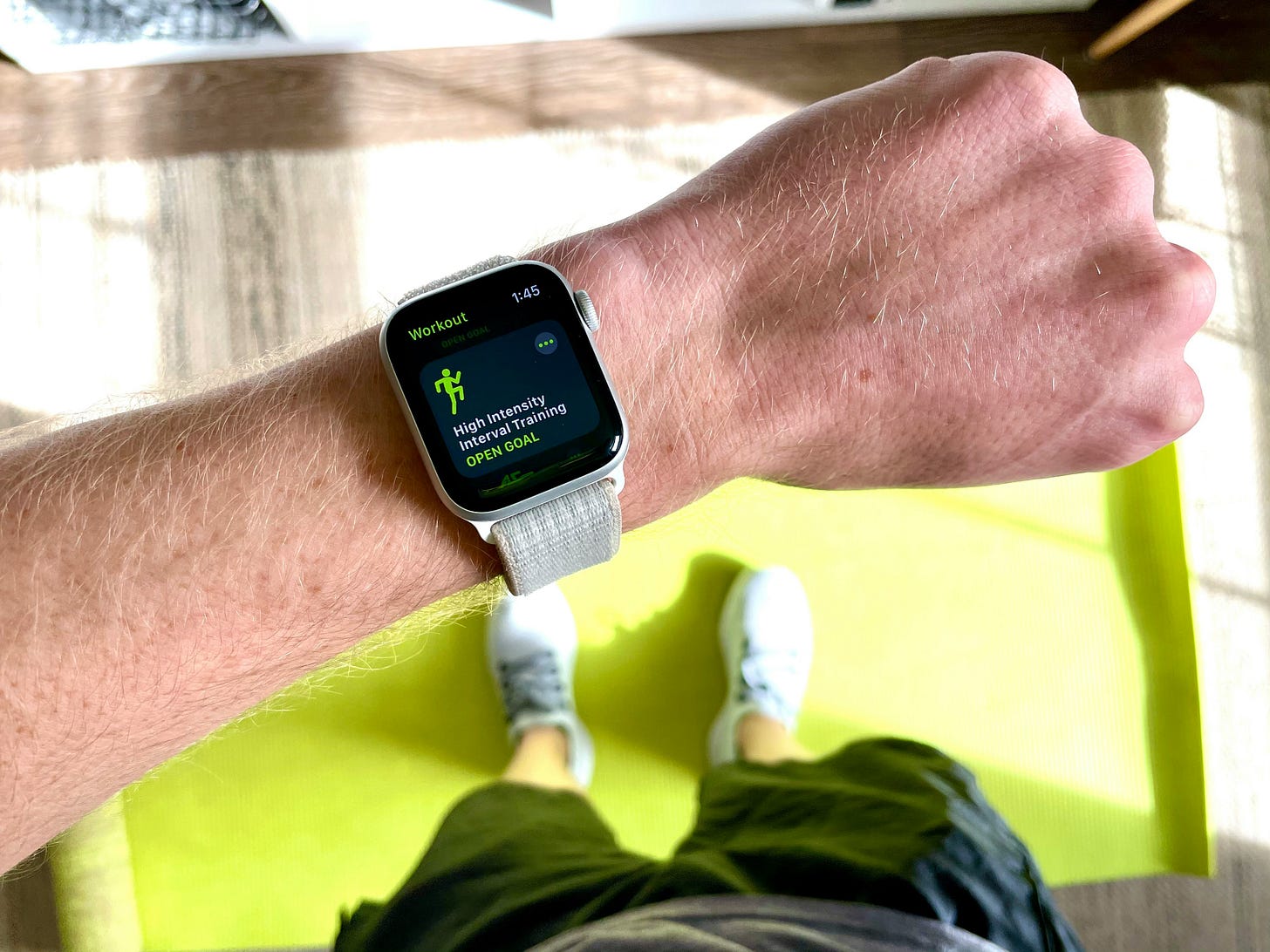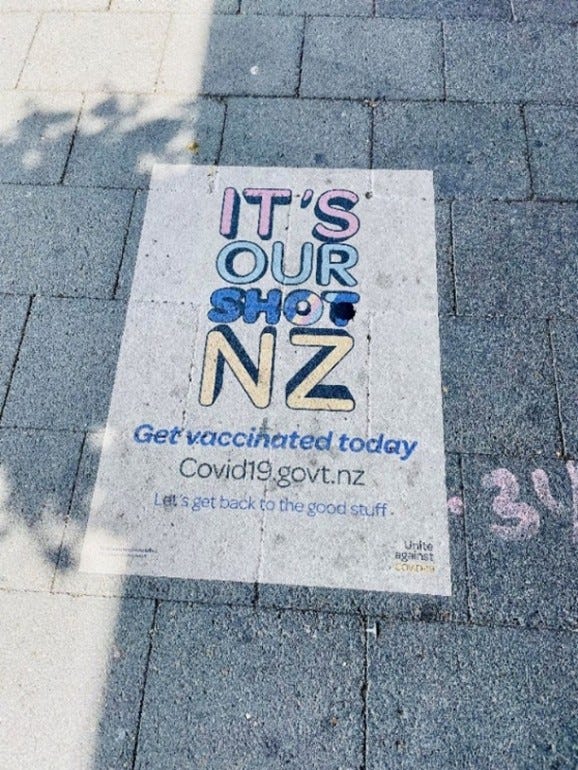Short Extract from The Nurses Collective NZ: Submission to the Covid Inquiry
Findings from an online survey of members of The Nurses Collective, Mar 2025
I’ve posted a summary of some research undertaken for the Submission that I recently co-authored with Deborah Cunliffe on behalf of The Nurses Collective NZ to the Covid Inquiry here. This week, one of my colleagues asked me, if I got an opportunity (highly unlikely!) to sit in front of the Covid Inquiry Commissioners for one of their Kanohi ki te Kanohi {face-to-face} hearings, what would I say? Well, I’d have lots to say, but this is probably where I’d start any conversation:
Taken from Section 8: Behavioural Science and the Nudge Unit
Propaganda is often dismissed as an historical wartime artefact, perhaps because it’s not in our national curriculum. Similarly, behavioural psychology is viewed as a specialist subject, perhaps applicable mainly for those Health Care Professionals (HCPs) with occupations that include fitness training, mental health or counselling.
The reality is, many commercial sectors, particularly the pharmaceutical industry, invest significant funds into researching marketing techniques which could be termed propaganda, to obtain a deeper understanding of what motivates consumers’ responses to different marketing methods.[1] Their aim is to increase profits for company shareholders. Effective propaganda creates a strong emotional attachment between the product and the customer, sometimes hidden through comedy or entertainment.[2] In recent decades, the internet has provided additional power for targetted propaganda by harvesting, presenting and manipulating global data, invisibly and without our informed consent.
Drawing on these contemporary understandings of citizens’ decision-making, the Behavioural Insights Team (BIT) published a report in 2010 for the UK Government entitled MINDSPACE: Influencing behaviour through public policy.[3] The report presented nine ways to influence and change public behaviour, based on outcomes from well-established psychological experiments. With the assistance of its chief academic advisor, Richard Thaler, Professor of Behavioral Science and Economics at the University of Chicago Booth School of Business, BIT expanded its influence in many international academic circles and think tanks. BIT became widely known as the ‘Nudge Unit’. However, as the authors of MINDSPACE pointed out (pg 73), without informed consent, implementing ‘nudge’ strategies on ingenuous citizens is entirely unethical.
No such public approval was ever sought or given. Nevertheless, seemingly dismissing the need for ethical approval, BIT expanded its reach and inevitably attracted significant commercial funding through Public Private Philanthropic Partnerships (PPPPs). The Nudge Unit established hundreds of formal contracts; prior to the covid era over 200 offices had opened worldwide, as part of NGOs, governments and corporate entities.[4] The Australian Government contract was formalized in 2012.[5] Here in New Zealand, a Nudge Unit was established in 2014.[6] Hence ‘nudge’ techniques were implemented and scaled-up in a variety of NZ policies, for instance in improving school attendance, environmental management or energy use.
Globally, BIT’s ‘Nudges’ were widely used during the covid era, and no-one was immune, including nurses, carers and midwives. Regrettably, many HCP’s not only allowed themselves to be influenced but encouraged their patients to respond likewise, despite basic principles such as ethics, informed consent and the right of autonomous individuals to make rational decisions free from coercion. The result of ‘nudge’ tactics in New Zealand went over and above ensuring Kiwis bought into the narrative but also damaged reputations of those who dared to point out the seemingly obvious manipulation.
Pro-vaccine messages (explicit and subliminal) were all-pervasive from social media influencers, celebrities and ‘experts’ many of whom of course had no more expertise than the ordinary Kiwi.[7] ‘Respected' clinicians in white coats, offered vouchers to impoverished communities, removed healthy alternatives and normalised what was, in fact, far from normal. Nurses, midwives and carers alike were misled into believing they were doing the right thing, even though, in most cases, this was tremendously at odds with our professional Code of Conduct and Competencies. For example:
“Intense pressure was placed on me to have an injection. The doctors I worked with were saying to patients within my [range of] hearing, that the unvaccinated should be rounded up by the police. One staff member suggested jabbing people as they walked past…” Nurse with 15 years’ experience.
&
“…The scaremongering of media was to blame the behaviours. I was bullied by my doctor and nurse about getting the jab. I felt discrimination from the health services when using A & E about wearing a mask and refusing to put one on.” Unvaccinated Carer
Ongoing media messaging, sponsored and controlled by the same corporate entities such as Pfizer’s partnership with the BBC and [‘Trusted’] Google News Initiative, played into the beliefs of many nurses in relation to the vaccine.

One participant of the survey whose views ran counter to all the other findings, indicates how clearly s/he was unaware of the extent of the censorship and propaganda. [8] Many individuals understandably lacked the knowledge, technical skills or support needed to circumvent the censorship and propaganda, as this quote from our survey illustrates:
“I did my own homework and was quite prepared to have the vax especially as my sister worked in a group of 6 hospitals in UK that had over 500 people die of Covid BEFORE the covid vaccine became available. Most anti vaxxers in my family started harassing me for my decision and it very nearly caused a divorce. I wasn't pushing my agenda on them. But they felt compelled to keep telling me "the truth" (their version of it). Any pushback I had was not looked at or mocked without really delving into facts. Vaccinated Nurse
As the MINDSPACE report states, when we are constantly told by those in positions of authority what is ‘truth’ and what is ‘fake news’, it is human nature to take the path of least resistance and associate our views with what perceive to be the ‘consensus’. Everyone is at risk of making poor decisions when in a state of fear, so it is understandable how, rather than using the critical reasoning skills our profession is renowned for, many chose to believe the prevailing narrative rather than consider why any questioning of the consensus was immediately closed down. For instance, there could have been other reasons for patients’ early death during the covid era, such as absent or inappropriate early treatment regimens or the possibility that treatments other than the vaccine, may help patients recover from any infection.
[You can read the whole Submission here]:
References/Footnotes
(2024) ‘Covid-19,’ Psychological Operations, and the War for Technocracy, Volume 1. Palgrave[2] E. Bernays, (2004 Ed) Propaganda.
[3] Dolan et al., (2011) ‘Mindspace: Influencing Behaviour through Public Policy’.
[4] Cavassini, Cameron, and Gauri, ‘BX2018 Journey 1: Behavioural Insights from Around the World.’ YouTube
[5] Initially with the NSW Department of Premier and Cabinet and then with Victoria’s in 2015. The Australian government later established a national BIT unit in the Department of Prime Minister and Cabinet (DPMC) in 2016, called BETA ‘Behavioural Economics Team Australia’ co-funding project costs with other federal government partners.
[6] Dept of the Prime Minister and Cabinet, ‘Behavioural Insights’; The Australia and New Zealand School of Government, ‘Behavioural Insights Teams in Australia and Aotearoa - New Zealand’.
[7] C.H. Klotz, ed., Canary in a Covid World: How Propaganda and Censorship Changed Our World (Canary House Publishing, 2023).
[8] Martin, ‘Covid Cover-up: Secrecy, Censorship and Suppression during the Pandemic.’ Secrecy and Society 3, no. 2 (2025): 24. https://doi.org/10.55917/2377-6188.






Apart from the propaganda, I think what was most shocking to me was that the health profession - the very people we should have been able to rely on in a (purported) "health crisis" to remain calm, to be critical, to perform due diligence - did none of that.
The whole profession seemed to descend into hysteria and madness, outsourcing their reasoning to TV talking heads and Politicians.
In what universe has this ever been acceptable?
If I'm diagnosed with Lymphoma, I wouldn't be seeking advice from Politicians or media. Yet that's exactly who steered their response.
I remember very early in Covid hearing someone in the U.S. relate an account of running into an old friend, now a doctor, in Boston and asking what the situation was with Covid, and his friend's response was "I'm not sure, we're just going with what's being reported on TV".
All anyone had to do, right back in 2020, was ask the simple question: "How dangerous is this thing?".
And the answer would have come back: *barely*. A complete non-starter.
As Anthony Colpo stated in a recent article:
https://open.substack.com/pub/anthonycolpo/p/pro-lockdown-and-fully-vaxxxed-australian?utm_source=share&utm_medium=android&r=nll84
"John Ioannidis published an analysis revealing a 0.15% infection fatality rate. Even researchers funded by Big Pharma and the extremely shady Bill and Melinda Gates Foundation could not muster up an IFR greater than 0·31%. A subsequent analysis by Ioannidis et al revealed an even lower IFR of 0.07% in the 0-69 age group”.
That's all they had to do.
Ask the most basic, fundamental question, and the whole thing would have come undone.
But they didn't.
And for that, I will never forgive them.
It seems the authorities are going to cause the establishment of a group that might be called the KRA, the Kiwi republican army. When facing a high risk of death from our own govt, it requires a similar response towards those in power. That’s the only choice left